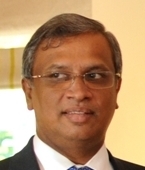NEWSSumanthiran leads MPs’ call: Postpone debt repayment now

Tamil National Alliance (TNA) MP M. A. Sumanthiran, PC, on behalf of several political parties, represented in Parliament, has requested the government to delay the repayment of foreign debt. Jaffna District MP and the TNA spokesperson Sumanthiran said that he had launched an effort to seek a consensus with his colleagues in his former capacity as the Chairman of the Parliamentary Committee on Public Finance. The group questioned the government strategy meant to address the deteriorating financial crisis.
The following is the text of the statement titled ‘A collective response to our economic crisis’ issued yesterday: “Sri Lanka is in the midst of an unprecedented economic crisis, causing severe hardship to all segments of our society, especially our working people and the poor.
Undoubtedly, the government has a daunting task ahead, and as a country there is a need for us all to come together to overcome this challenge.
At the same time, the government’s approach to resolving the crisis raises some serious questions. Its focus, almost solely on meeting foreign debt obligations, is draining the country of dollars needed for importing essentials for our people. The government’s emphasis on avoiding a default at any cost appears to be downplaying a fundamental question – can our people eat? After all, a country’s pride rests not only in repaying its loans, but also in ensuring no citizen goes to bed hungry.
Recognising this dire situation, a group of leaders from over half a dozen key political parties in Sri Lanka came together in a closed-door meeting on Thursday 27th January 2022, to brainstorm ways to tide over this crisis, given the responsibility we have towards the Sri Lankan people.
I approached parliamentary colleagues and party leaders, in my capacity as a former chairman of the Committee on Public Finance in Parliament. MPs came together in the knowledge that Parliament is expected to have full control of public finance, and that each MP, therefore, also has a fiduciary responsibility to ensure the proper management of public finances in Sri Lanka.
The crisis, we noted, is of a proportion that is historically unprecedented for many reasons:
(1) The country’s ratings have fallen to the level of being blacklisted in international credit markets. Since April 2020, Sri Lanka has been locked out of borrowing using International Sovereign Bonds (ISBs) in the international market
(2) Repaying US dollar debt in this context means that the usable foreign reserves are down to below one month of imports – the lowest on record since independence.
(3) The ratio of interest on debt to government revenue was above 70% in 2020, a historical high for Sri Lanka, and amongst the highest in the world.
(4) The ratio of public debt compared to the value of Sri Lanka’s domestic production (GDP) is also the highest on record, at 120%. It skyrocketed, by almost 25 percentage points, in the last two years.
